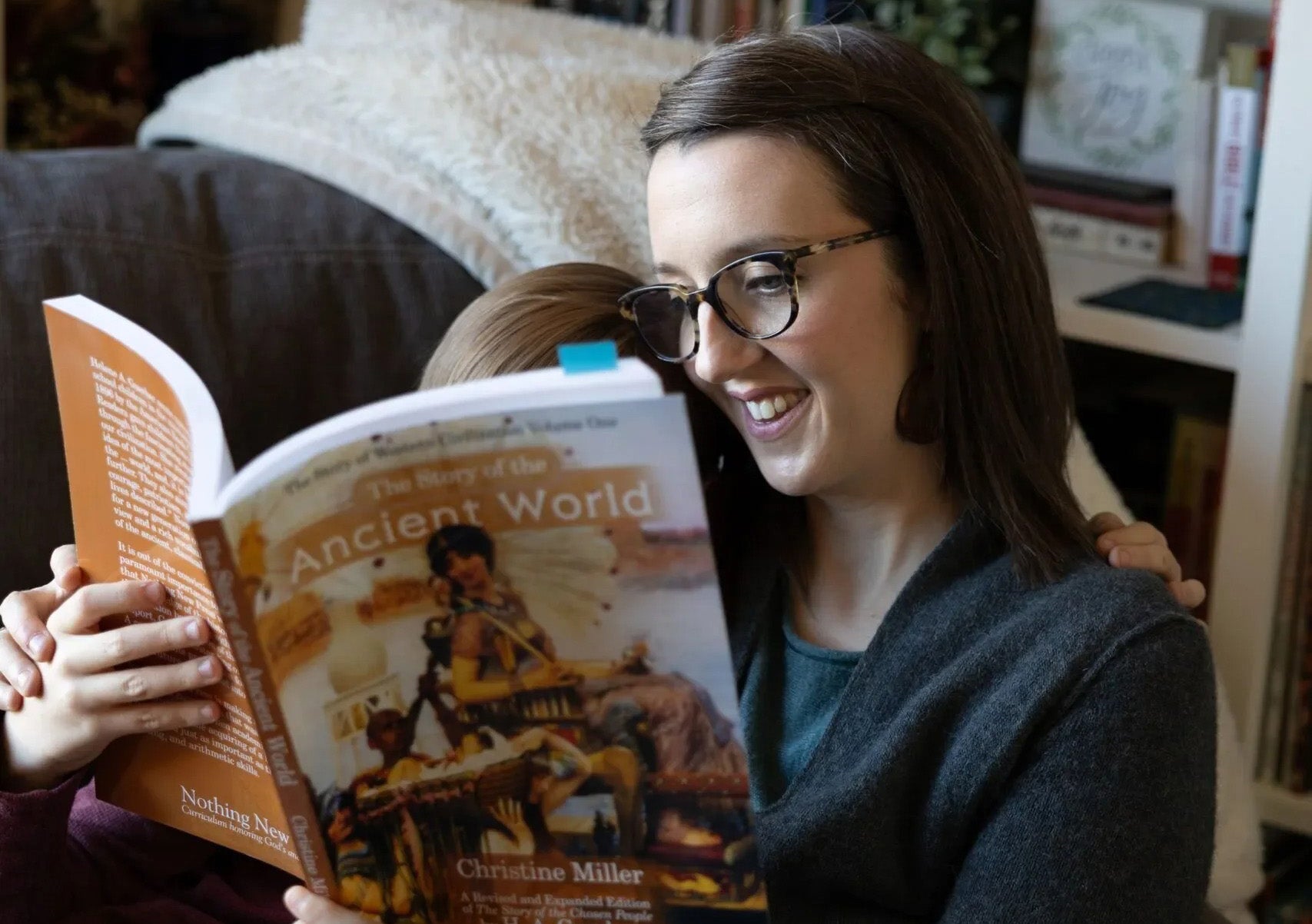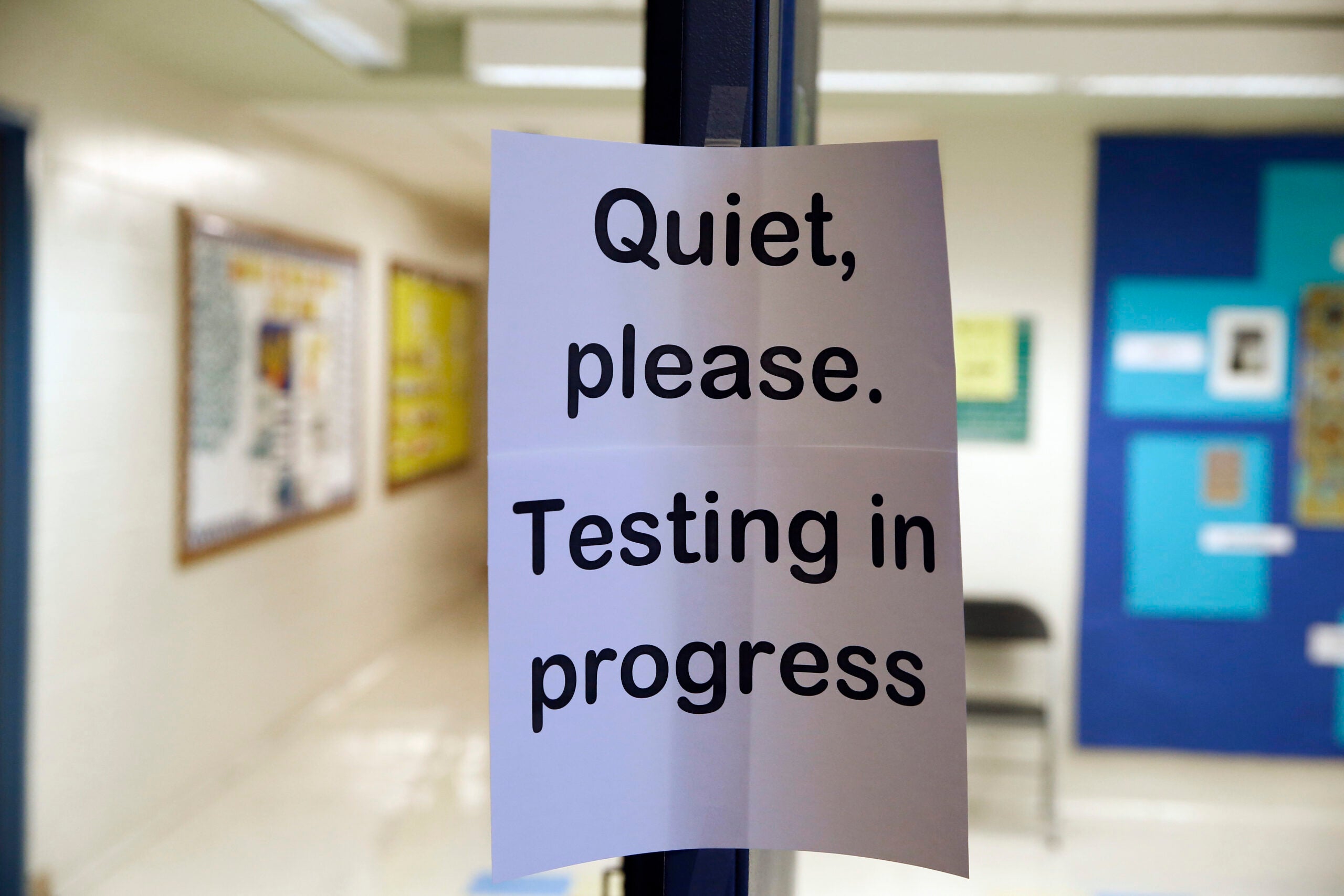A legislative committee of educators chose the new curriculum public and private schools will use to teach children how to read.
The group, formed this fall, was tasked with the job following the passage of a sweeping bipartisan reading bill aimed at improving statewide test scores.
But this week, the Department of Public Instruction informed state legislators that despite months of meetings, the Early Literacy Curriculum Council did not fully complete its job.
News with a little more humanity
WPR’s “Wisconsin Today” newsletter keeps you connected to the state you love without feeling overwhelmed. No paywall. No agenda. No corporate filter.
Instead, DPI is asking the Joint Committee on Finance to approve 11 early literacy curricula for kindergarten through third graders.
In a letter to the JFC this week, DPI said meetings with the literacy council were spent discussing how to rate materials instead of studying the curriculum for content.
Because of this, DPI said deadlines were missed.
“As it became clear how much time was needed to review instructional materials, the council opted to rate materials based on date of submission and openly discussed not rating all submitted materials,” DPI’s letter to JFC states.
“After the Jan. 24, 2024 meeting, DPI determined statements and actions by the council’s section process had exposed the state of Wisconsin to an unacceptable level of risk that the process and ultimate recommendations could be successfully challenged,” the letter states.
The nine-member Early Literacy Curriculum Council was appointed in September by DPI, Assembly Speaker Robin Vos and Senate Majority Leader Devin LeMahieu.
The counsel recommended four curriculum choices:
- CKLA by Amplify
- EL by Open Up Resources
- Wit and Wisdom with Geodes and Really Great Reading
- Bookworms by Open Up Resources
DPI struck “Bookworms” from the list, and instead added eight additional choices.
Curriculum Council Secretary Katie Kasubaski was appointed by Vos. She is a homeschool mom and the Wisconsin state leader of Decoding Dyslexia, a parent organization “concerned with the limited access to educational interventions for dyslexia within the public education system.”
After hearing the decision by DPI, she said she felt “defeated.”
“I have two teenage kids and so many other things to do, and I spent so much time on the council and going over curriculum. This really seemed like a wasted effort,” Kasubaski said. “But I know that when change happens, it is hard for some people, and I know that sometimes the final outcome is not what you expect it will be.”
Rep. Joel Kitchens, R-Sturgeon Bay, who is the chair of the Assembly Committee on Education and who served on the council, did not return requests for comment.
Fewer than 40 percent of third graders were proficient in reading on the most recent Wisconsin Forward Exam. Wisconsin’s achievement gap between Black and white fourth grade students in reading has often been the worst in the nation.
Under Act 20, school districts will begin shifting away from what is known as “balanced literacy,” to a “science of reading” approach. Students will now be taught to read with an emphasis on phonics.
Currently, only about 30 percent of Wisconsin school districts use a science of reading approach.
Approved curriculum will be reimbursed for school districts
The Joint Finance Committee has two weeks to schedule a meeting to approve or modify the materials.
JFC co-chairs Sen. Howard Marklein, R-Spring Green, and Rep. Mark Born, R-Beaver Dam, did not respond to requests for comment.
Approved curriculum will be eligible for partial reimbursement grants for the 2024-25 school year when both public and private schools have to comply with the new law.
Districts are not required to choose the curriculum from the list, but Act 20 requires implementation of science-based early literacy instruction, meaning instruction that is systematic, explicit and consists of methods as specified in the law.
Too few or too many options?
In a statement, State Superintendent Jill Underly said the list of 11 curricula represents material that meets the requirements of Act 20 and the dedication DPI has to students.
“Getting Act 20 passed and signed was a great example of how we can work together across agency and legislative divides to advance good policy to help kids,” Underly said. “These kids are going to lead our state in the very near future, and thanks to efforts like this, when kids are at the center of our decisions, I know our future is going to be a bright one.”
But parent Jenny Warner doesn’t believe giving school districts the option of 11 curricula will make a meaningful difference in reading test scores.
Warner has two children in the School District of Colfax, north of Eau Claire. Her son, a third grader, is dyslexic. She said her daughter, a first grader, likely also has the learning disorder.
Warner has used a combination of direct explicit systematic phonics, handwriting, spelling and fluency work at home, after school, to help her son read.
She says it is labor intensive and she can’t cut corners.
“I think DPI is trying to appease the masses and go with the status quo,” Warner said. “I think they are putting in too many, and putting in poor quality because they are not willing to push the envelope of what they are expecting in schools.”
Wisconsin Public Radio, © Copyright 2026, Board of Regents of the University of Wisconsin System and Wisconsin Educational Communications Board.







